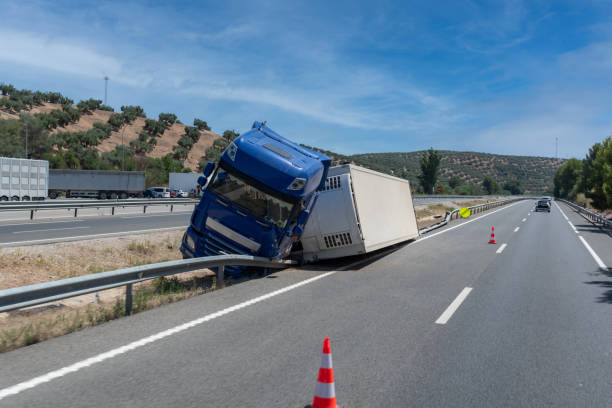When it comes to tractor-trailer accidents, the big question many accident victims have is who can they sue for compensation, and what kind of compensation might they be entitled to? Tractor-trailer accidents are some of the most devastating types of motor vehicle collisions. They usually involve large commercial vehicles that carry goods or services from one place to another. The sheer size and weight of these trucks can cause catastrophic damage when they are involved in an accident. It is important to know who you can sue after such an incident so that you can receive the justice and compensation you deserve.
The first step towards determining who can be held liable for a tractor-trailer accident is understanding who owns the trucking company and its drivers. Generally, trucking companies are owned by individuals or corporations which employ the drivers that operate their vehicles. In some cases, driver’s employers may not be directly responsible for any potential negligence on behalf of their employees; however, depending on state laws, they may still be held vicariously liable for any damages caused by the driver’s negligence. In other words, even if it turns out that the driver was solely responsible for causing the accident, the employer may still be held financially accountable due to their association with their employee’s activities as part of their business operations.
In addition to possible employer liability, another party that could potentially be held liable for a tractor-trailer accident includes the truck manufacturer. If faulty or defective parts were responsible for causing an accident, then this could affect both safety regulations and consumer protection laws – meaning that if a lawsuit results from such an incident, then both the manufacturer of those parts and/or any retailers that sold them could potentially face liability claims as well.
Victims of tractor trailer accidents may also have legal recourse against third-party contractors who were hired by either drivers or trucking companies but then acted negligently while performing their duties – this could include maintenance workers or subcontractors whose mistakes caused unsafe conditions which ultimately led to a collision involving a commercial vehicle. Additionally, cargo loaders or shippers could also face liability if it turns out that something was illegally loaded onto a truck which caused it to become overweight due to unstable loads shifting during transit – causing instability in the vehicle which resulted in an accident occurring further down the road.
Finally, depending on state laws, victims of tractor-trailer accidents may also have grounds to file insurance claims against multiple parties, such as non-trucking insurers (who insure drivers personally rather than professionally), uninsured motorist coverage (which covers losses incurred when victims cannot identify a negligent driver) and underinsured motorist coverage (which covers injuries sustained when negligent drivers do not carry enough insurance coverage).
Overall, determining who can be sued after a tractor-trailer accident requires very specific knowledge about local laws regarding negligence as well as experience navigating complex civil lawsuits — which is why it is important to retain experienced personal injury attorneys who specialize in representing victims hurt by negligence on behalf of someone else. Armed with such professional assistance, victims may not only see themselves compensated fairly but also find justice served upon those whose recklessness put others at risk – ensuring greater safety along our roads while providing much-needed peace of mind after suffering injuries due to someone else’s negligence behind the wheel of one these massive vehicles used in daily transportation across America.

Leave a Reply